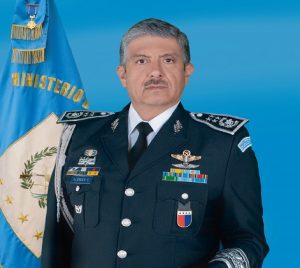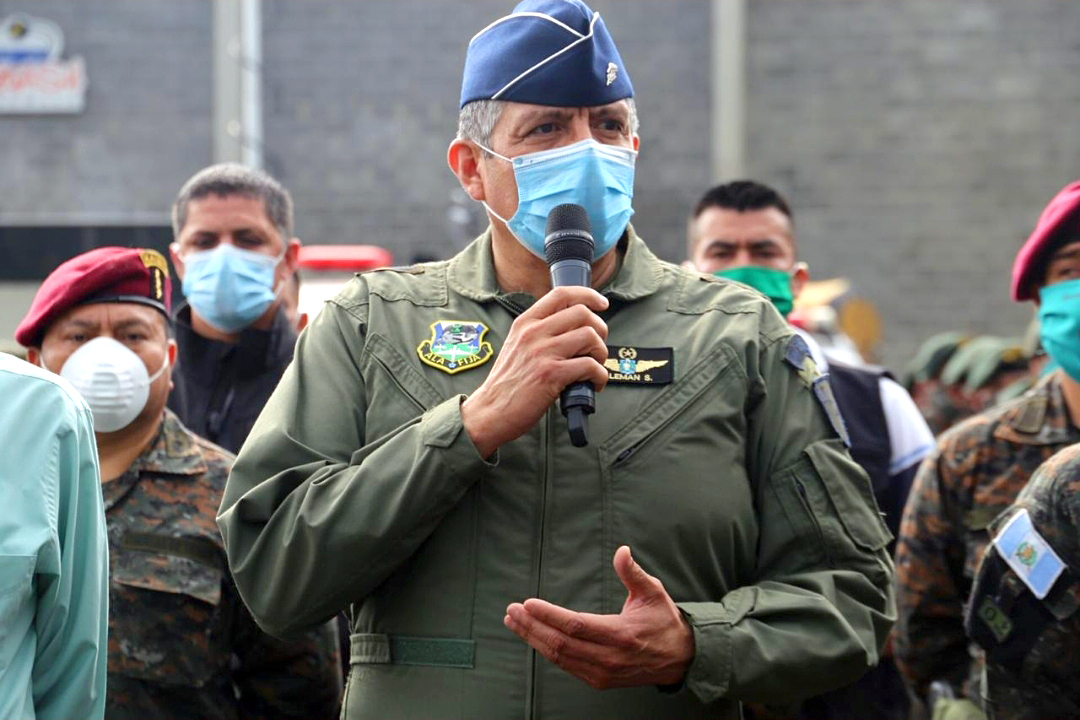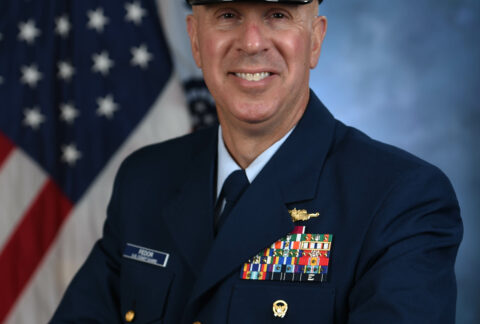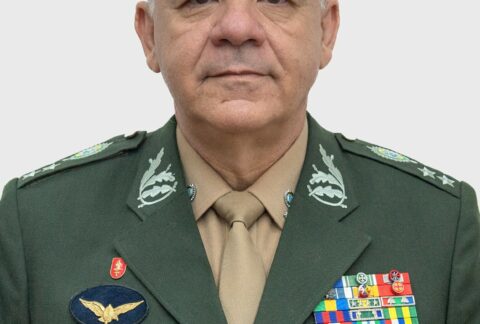Diálogo interviewed Guatemalan Defense Minister General Juan Carlos Alemán Soto.
Diálogo: How has the pandemic affected illicit trafficking activities? Are there any new illicit routes in your country?
Guatemalan Defense Minister General Juan Carlos Alemán Soto:During the current pandemic in Guatemala we have seen a reduction in narcotrafficking activities; however, there have been brief periods of operational intensity, as in the last week of July, when an aircraft landed in national territory, and on August 21, when authorities captured an aircraft in Guatemalan territory.

We can’t say that [narcotraffickers] are taking advantage of the effects of this new illness; the Guatemalan Army has maintained its operational intensity despite the number of infections reported. Neither can we say that they are exploiting new routes, because the Guatemalan Air Force’s radar platform makes it difficult for them to fly in Guatemalan skies; I think they are implementing new methods. It seems that they are colluding with community members to keep their clandestine airstrips safe, unload the drugs, and hinder the work of the authorities to the greatest extent possible. This puts governance at serious risk, as inhabitants become victims of both the health situation and the actions of transnational organized crime.
Diálogo: How do the Guatemalan Armed Forces combat transnational criminal organizations?
Gen. Alemán: The Guatemalan Army is present along the borders shared with Mexico, Honduras, and El Salvador, and in the area adjacent to Belize. It enforces land and naval controls, and it operates together with the National Civil Police and the Superintendency of Tax Administration (Treasury) to counter actions such as smuggling, narcotrafficking, and human trafficking, among others.
As for the airspace, the Guatemalan Air Force’s radars, in coordination with other similar regional platforms, give notice about the proximity of a flight to the national airspace and monitor it once it enters our space. Operations have been successful, and we were able to seize, secure, and deliver more than 7,460 packages of cocaine to the authorities this year alone.
Diálogo: How does Guatemala cooperate with the region and the United States in the fight against threats to regional security?
Gen. Alemán: Guatemala executes combined border patrol operations with neighboring countries to reduce the operations of groups engaging in illicit activities in the region. The communication among countries is constant; consequently, there are frequent meetings with operation officers and border commanders from Mexico, Honduras, and El Salvador, aimed at sharing information and planning operations in a combined manner.
The threats include disasters, so we have made our resources available to the region; in this case, the resources consist of Guatemala’s Humanitarian and Rescue Battalion, which has personnel properly trained and equipped to carry out rescue work, evacuations, searches in collapsed structures, fire extinguishing, and airlift rescue, among other missions.
Diálogo: How do the Guatemalan Armed Forces work to support the population during the pandemic crisis?
Gen. Alemán: Since the government approved the COVID-19 Prevention, Containment and Response Plan, the Guatemalan Army has provided its capabilities and equipment to the Ministry of Public Health and Social Assistance for the following programs:
- Packaging, transportation, and distribution of 200,000 boxes containing staple foods, under the name “We Will Get Through This” (Saldremos Adelante), reaching the same number of families and benefiting more than 1.5 million Guatemalans throughout the country.
- Through the Army Corps of Engineers, we’ve opened four temporary hospitals in 70 days in different parts of the country.
- Air, land, and maritime border control operations have increased to prevent the entry of people and goods that are unauthorized or not subject to sanitary controls, which might endanger the health of Guatemalans.
- Support for law enforcement authorities through force protection operations, to ensure compliance with presidential orders regarding mobility restriction hours and, eventually, during the pandemic’s containment phase.
- We delivered two military facilities to assist in this health emergency: We delivered a type “A” infirmary from our Air Command to the country’s north to be refurbished as a temporary hospital, and we delivered a transit camp designed for the medical protocols of our personnel returning from peacekeeping missions, so that it can be used to assist about 200 patients.









